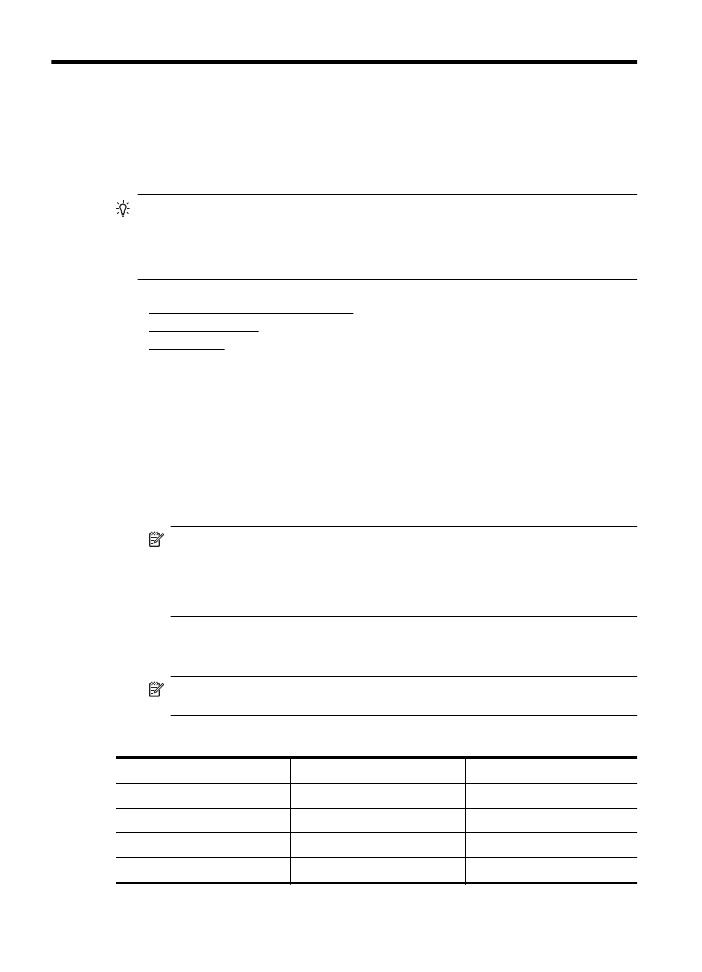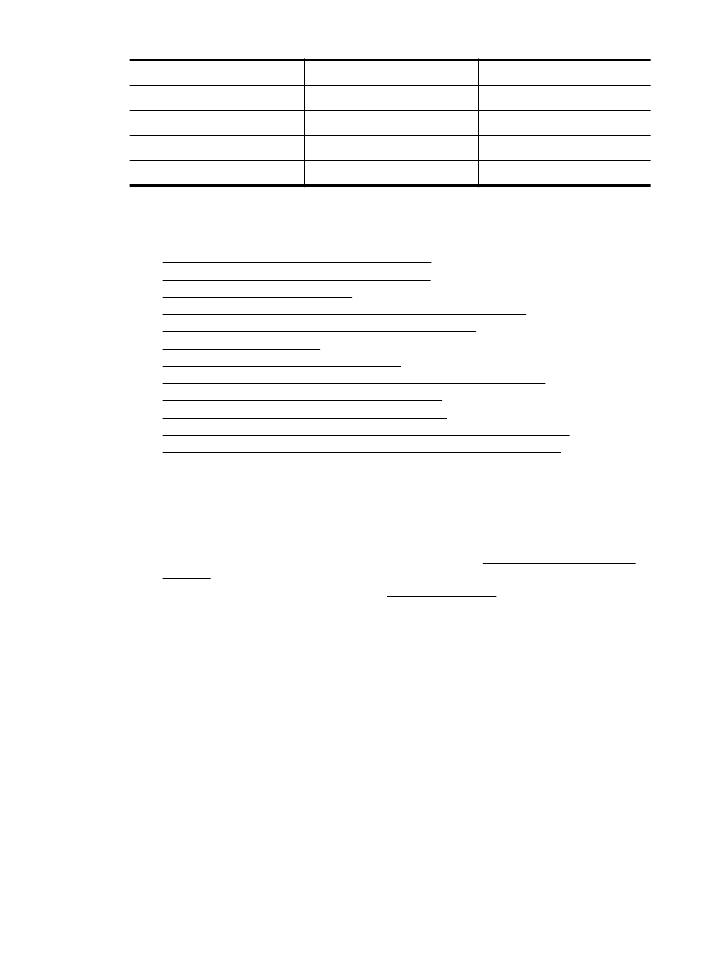
Set up faxing (parallel phone systems)
Before you begin setting up the printer for faxing, determine which kind of phone system your
country/region uses. The instructions for fax setup differ depending on whether you have a serial-
or parallel-type phone system.
•
If you do not see your country/region listed in the table, you probably have a serial-type
phone system. In a serial-type phone system, the connector type on your shared telephone
equipment (modems, phones, and answering machines) does not allow a physical
connection to the "2-EXT" port on the printer. Instead, all equipment must be connected at
the telephone wall jack.
NOTE: In some countries/regions that use serial-type phone systems, the phone cord
that came with the printer might have an additional wall plug attached to it. This enables
you to connect other telecom devices to the wall jack where you plug in the printer.
You might need to connect the supplied phone cord to the adapter provided for your
country/region.
•
If your country/region is listed in the table, you probably have a parallel-type telephone
system. In a parallel-type phone system, you are able to connect shared telephone
equipment to the phone line by using the "2-EXT" port on the back of the printer.
NOTE: If you have a parallel-type phone system, HP recommends you use the 2-wire
phone cord supplied with the printer to connect it to the telephone wall jack.
Table C-1 Countries/regions with a parallel-type phone system
Argentina
Australia
Brazil
Canada
Chile
China
Colombia
Greece
India
Indonesia
Ireland
Japan
Korea
Latin America
Malaysia
196
Additional fax setup

Mexico
Philippines
Poland
Portugal
Russia
Saudi Arabia
Singapore
Spain
Taiwan
Thailand
USA
Venezuela
Vietnam
If you are unsure which kind of telephone system you have (serial or parallel), check with your
telephone company.
This section contains the following topics:
•
Select the correct fax setup for your home or office
•
Case A: Separate fax line (no voice calls received)
•
Case B: Set up the printer with DSL
•
Case C: Set up the printer with a PBX phone system or an ISDN line
•
Case D: Fax with a distinctive ring service on the same line
•
Case E: Shared voice/fax line
•
Case F: Shared voice/fax line with voice mail
•
Case G: Fax line shared with computer modem (no voice calls received)
•
Case H: Shared voice/fax line with computer modem
•
Case I: Shared voice/fax line with answering machine
•
Case J: Shared voice/fax line with computer modem and answering machine
•
Case K: Shared voice/fax line with computer dial-up modem and voice mail